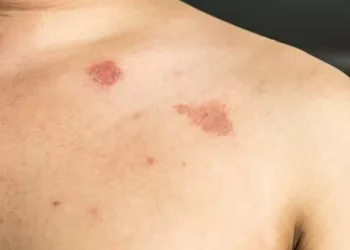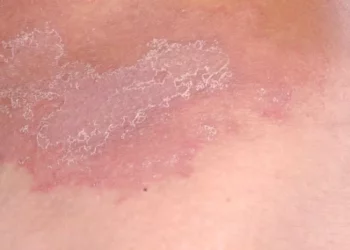Scalp fungus, also known as tinea capitis, is a common fungal infection that affects the scalp. It can lead to discomfort, hair loss, and other symptoms that may make it difficult for people to enjoy daily activities. Understanding how long scalp fungus lasts is important for managing the condition effectively. This article will provide an in-depth look at how long scalp fungus lasts, its causes, symptoms, treatment options, and tips for faster recovery.
What is Scalp Fungus?
Scalp fungus is an infection caused by dermatophytes, a type of fungus that thrives in warm, moist environments. These fungi infect the outer layer of the skin and hair follicles, leading to scalp irritation, dandruff, and hair loss in some cases. The most common type of fungus responsible for scalp infections is Trichophyton tonsurans.
Fungal infections on the scalp can affect people of all ages, but they are more common in children. The infection is contagious and can spread through direct contact with infected people, animals, or contaminated objects such as combs, hats, or towels.
How Long Does Scalp Fungus Last Without Treatment?
Without treatment, scalp fungus can last anywhere from a few weeks to several months. The length of time it persists depends on various factors, such as the severity of the infection, the type of fungus involved, and the individual’s immune system. In some cases, the infection may become chronic, requiring prolonged treatment.
As the infection progresses, it can cause patches of hair loss, scaly skin, and sometimes an unpleasant smell. If left untreated, the fungus can spread to other parts of the scalp, potentially worsening the condition.
How Long Does Scalp Fungus Last With Treatment?
With the right treatment, scalp fungus can clear up within 4 to 6 weeks. However, the exact duration depends on several factors, including how soon treatment is started and the type of antifungal medication used.
Antifungal treatments for scalp fungus typically come in the form of topical creams, shampoos, or oral medications. When treatment is followed correctly, it can significantly reduce the duration of the infection. However, it’s important to continue the treatment for the full prescribed duration, even if symptoms seem to improve. Stopping treatment too soon can result in the fungus returning.
Symptoms of Scalp Fungus
Scalp fungus manifests through a variety of symptoms. Some people may experience mild symptoms, while others may have more severe reactions. Here are the common signs of scalp fungus:
Itchy Scalp: Itching is one of the most common symptoms. The affected area of the scalp becomes irritated and sensitive, leading to constant scratching.
Hair Loss: One of the hallmark signs of scalp fungus is hair loss. The fungus affects the hair follicles, causing hair to fall out in patches.
Red, Scaly Patches: The scalp may become red and inflamed, with patches of dry, flaky skin. These patches can spread over time, making the infection worse.
Blisters or Pustules: In some cases, blisters or pustules may form on the scalp. These can be filled with pus and may cause pain.
Unpleasant Odor: As the infection worsens, an unpleasant smell may develop due to the buildup of fungi and bacteria on the scalp.
Crust Formation: If the infection is left untreated, the affected areas may form crusty or scaly patches that can bleed when scratched.
Treatment Options for Scalp Fungus
There are several treatment options available to treat scalp fungus, ranging from over-the-counter remedies to prescription medications. Your healthcare provider will recommend the best course of treatment depending on the severity of the infection.
1. Topical Antifungal Treatments
For mild cases of scalp fungus, topical antifungal treatments such as creams or medicated shampoos are usually sufficient. These treatments contain ingredients like ketoconazole, clotrimazole, or selenium sulfide that help to kill the fungus and prevent it from spreading.
These treatments should be applied directly to the affected area of the scalp. Medicated shampoos are usually used twice a week, and the cream or ointment should be applied once or twice daily.
2. Oral Antifungal Medications
In more severe cases of scalp fungus, or when the infection does not improve with topical treatments, oral antifungal medications may be necessary. These medications work systemically to clear the infection from within the body.
Common oral antifungal drugs include terbinafine, griseofulvin, and itraconazole. These medications are typically taken for 2 to 4 weeks, and your doctor may continue the treatment for a longer period if necessary.
3. Home Remedies for Scalp Fungus
Some people choose to use home remedies to manage scalp fungus. While these may not be as effective as professional treatments, they can offer relief for mild cases or as a supplementary treatment. Some home remedies include:
Tea Tree Oil: Tea tree oil has antifungal and antibacterial properties. It can be applied to the scalp diluted with a carrier oil such as coconut oil. However, it should be used with caution, as some people may experience irritation or allergic reactions.
Apple Cider Vinegar: Apple cider vinegar can help balance the pH of the scalp and may have mild antifungal effects. It should be diluted with water before applying it to the scalp.
Aloe Vera: Aloe vera has soothing properties that can help calm the itching and inflammation associated with scalp fungus. You can apply aloe vera gel directly to the affected areas.
While home remedies can be useful for managing mild symptoms, it’s important to consult with a healthcare provider for an accurate diagnosis and appropriate treatment.
Preventing Scalp Fungus
Scalp fungus is contagious, so taking steps to prevent its spread is crucial. Here are some preventive measures you can take:
Avoid Sharing Personal Items: Fungal infections can spread through contaminated items, so avoid sharing hats, combs, brushes, or towels with others.
Keep Your Scalp Clean and Dry: Fungi thrive in warm, moist environments. Keeping your scalp clean and dry can help prevent fungal infections.
Use Antifungal Shampoos: If you are prone to scalp infections, using antifungal shampoos regularly can help prevent the growth of fungi on your scalp.
Wash Hair After Sweating: If you sweat heavily from exercise or hot weather, make sure to wash your hair afterward to prevent moisture buildup.
Treat Pets for Fungal Infections: Fungi can also spread from animals, so if you have pets, ensure they are regularly treated for any skin conditions.
When to See a Doctor
If you suspect you have scalp fungus, it’s important to seek medical advice. While over-the-counter treatments can be effective for mild cases, a doctor can provide a more accurate diagnosis and prescribe stronger medications if necessary.
You should visit a healthcare provider if:
- The infection does not improve with over-the-counter treatments.
- You experience severe pain or swelling on your scalp.
- The infection spreads to other parts of your body.
- You notice pus-filled blisters or severe hair loss.
- You have other symptoms, such as fever, indicating the infection may have spread.
Conclusion
Scalp fungus can last anywhere from a few weeks to several months, depending on the severity of the infection and the treatment approach. With proper treatment, most cases of scalp fungus can be cleared within 4 to 6 weeks. However, it’s important to follow the full course of treatment to prevent the infection from returning.
By practicing good hygiene, avoiding sharing personal items, and using antifungal products, you can help prevent scalp fungus and promote faster recovery if you do get infected. If your symptoms persist or worsen, consult a healthcare provider for further guidance and treatment.
Related topics



























